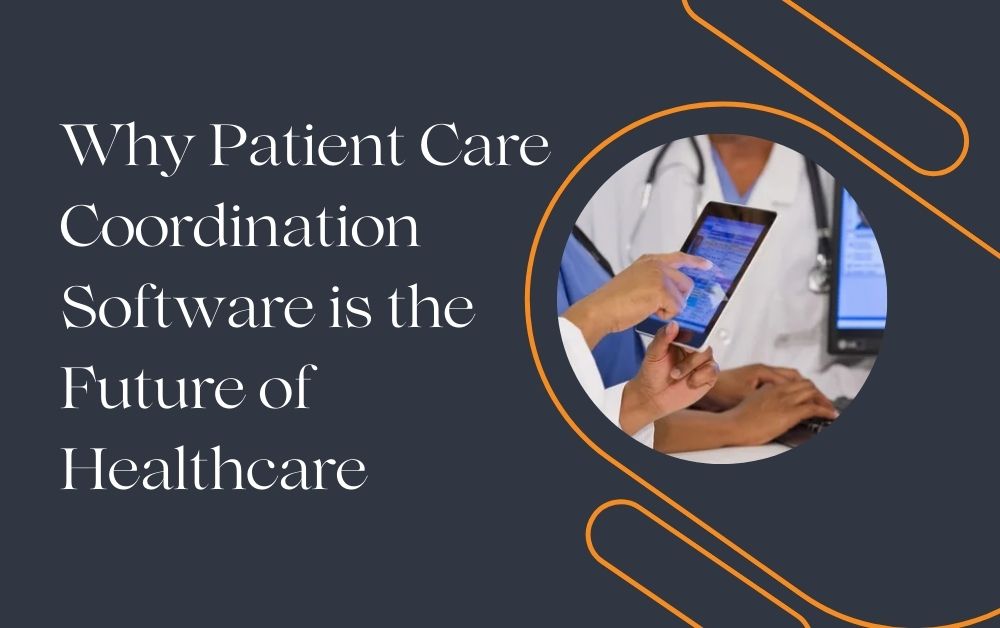Patient care coordination software is becoming increasingly important in the healthcare sector. This technology helps healthcare providers to manage and share patient information more effectively. It aims to improve the quality of care given to patients by making sure that all the healthcare professionals involved in a patient’s care are on the same page. In simple terms, this software acts as a bridge that connects all the dots in patient care, ensuring that information flows smoothly between doctors, nurses, specialists, and anyone else involved in a patient’s health journey.
One of the main reasons why patient care coordination software is essential is because it helps to reduce errors. With all the information in one place and accessible by all relevant parties, there’s less chance of mistakes being made. For example, it can alert a healthcare provider if they try to prescribe a medication that could interact badly with another medication the patient is taking. This not only improves patient safety but also enhances the efficiency of the healthcare process.
Note – Discover how BlueSecure can transform your approach to patient care. Experience the benefits of advanced Patient Care Coordination Software today and see how easy and effective managing healthcare can be. Click here to learn more about BlueSecure and start your journey towards streamlined and efficient patient care now!
How This Software Improves Healthcare
Patient care coordination software significantly boosts the efficiency of healthcare services. It saves time for healthcare providers by automating routine tasks like scheduling appointments and updating patient records. This means that doctors and nurses can spend more time with their patients, leading to better care and more satisfactory health outcomes.
Moreover, this software supports better decision-making. With comprehensive, up-to-date information readily available, healthcare providers can make informed decisions quickly. This is particularly crucial in emergency situations where time is of the essence. By having all necessary patient information at their fingertips, healthcare professionals can act swiftly and effectively.
Another major benefit is the enhancement of patient engagement. This software often comes with tools that allow patients to access their own medical records, understand their treatment plans, and communicate easily with their healthcare providers. When patients are more engaged in their own care, they are more likely to follow treatment plans closely and report any issues that may arise, leading to better overall health outcomes.

The Role in Chronic Disease Management
Chronic diseases require continuous care and management, which can be complex and demanding. Patient care coordination software simplifies the management of chronic conditions by providing tools that help track patient health over time. It allows for the monitoring of symptoms, medication adherence, and the effectiveness of treatments. This is crucial for conditions like diabetes, heart disease, and asthma, where consistent care is necessary to prevent complications.
The software also facilitates better communication among the various specialists involved in managing a chronic disease. For instance, a patient with diabetes might see an endocrinologist, a dietitian, and a primary care physician. Coordination software ensures that all these professionals have access to the same information and can align their approaches to provide the best possible care.
Impact on Reducing Healthcare Costs
Finally, patient care coordination software plays a significant role in reducing healthcare costs. By improving efficiency and reducing errors, it helps to avoid unnecessary tests and procedures. It also minimizes hospital readmissions, which are costly to the healthcare system. Patients receive more proactive care, which often prevents emergency situations and serious complications that are expensive to treat.
In conclusion, patient care coordination software is vital for modern healthcare. It improves the efficiency and effectiveness of care, enhances patient safety, supports chronic disease management, and reduces healthcare costs. As technology continues to evolve, the role of such software in healthcare is set to become even more pivotal, making it an essential tool for healthcare providers looking to provide the best care possible in the most efficient way.
For more insightful articles related to this topic, feel free to visit ranktheblog.com.au
